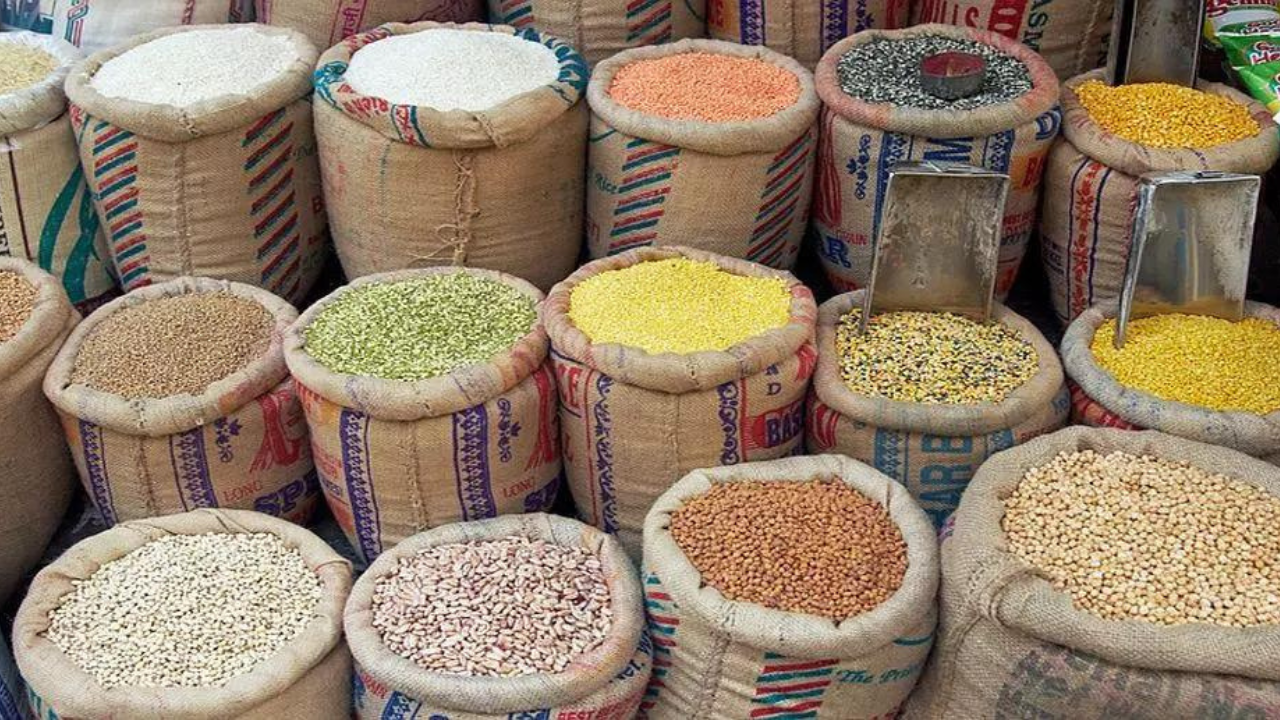Climate change threatens India’s agricultural backbone, impacting food security and economy

[ad_1]
Climate trends unveils disturbing findings on India’s agricultural vulnerability:
The report collates scientific evidence and public data, revealing the escalating threat to India’s agriculture, primarily linked to changing patterns in the summer monsoon season—an integral component of the nation’s agrarian economy.Key findings include a 6% decline in summer monsoon rainfall since the 1950s, with a more alarming 10% reduction in the central region, where 60% of agriculture relies on rain.
Agricultural losses attributed to climate change:
The report highlights various climate change impacts on India’s agriculture:
- Greenhouse gases and human-caused pollution could have increased the annual kharif rice harvest by 14.4% between 1985 and 1998 in major rice-producing states.
- Temperature increases from 1981 to 2001 led to a 5.2% reduction in wheat yields in several states.
- Greenhouse gases and pollution caused a 36% and 20% decrease in wheat and rice yields, respectively, from 1980 to 2010 in major states.
- The Himalayan region, experiencing a doubled rate of ice loss since 2000, witnessed a shift in apple cultivation to higher elevations.
- Erratic monsoons in June and July 2023 delayed kharif crop sowing by almost 9%.
Dr. Akshay Deoras, Research Scientist at the National Centre for Atmospheric Science & Dept. of Meteorology, University of Reading, highlighted, “Global warming fuels extreme weather events, making the agriculture sector more vulnerable to losses.”
Farmers’ perceptions of climate change impacts:
The report incorporates the perspectives of farmers from various regions:
- Apple growers in Kullu district attribute poor production to changing snowfall, temperature, and rainfall patterns.
- Uttarakhand farmers report erratic rainfall, diminishing yields, and increased temperatures.
- Farmers in the Kangchenjunga Biosphere Reserve perceive increasing temperatures, unpredictable rainfall, and changes in crop flowering times.
- West Tripura farmers report increased diseases, hot days, and decreased rainfall.
Aarti Khosla, Director of Climate Trends, stressed the consequences, stating, “Rice and wheat crops, comprising 85% of annual grain production, are highly sensitive to climate change impacts.”
Food inflation trends amidst weather anomalies:
The report emphasizes the economic impact on food prices:
- Tomatoes’ domestic cost surged by over 700%.
- Increased onion prices led to a 40% export levy.
- Food price inflation reached 11.51% in July 2023.
- Year-on-year inflation rates increased for vegetables, pulses, grains, spices, and milk.
Extreme heat impact and food security at risk:
The report details the repercussions of extreme heat:
- Sudden temperature increases in 2010 reduced wheat yields by up to 20%.
- A single heatwave during a critical growth phase negatively impacts wheat, maize, and soybean yields.
- 70% of India’s rural population relies on agriculture for livelihood.
- 59,000 suicides in India over three decades are attributed to crop-damaging warmer temperatures.
Prof. Anjal Prakash, Clinical Associate Professor and Research Director at the Bharti Institute of Public Policy, highlighted the unprecedented challenge India faces, urging resilient agricultural practices.
As India grapples with the tightening grip of the climate crisis, the report underscores the urgent need for diversified crops and sustainable agricultural practices to secure a resilient and sustainable future for the nation’s agricultural heritage.
#Climate #change #threatens #Indias #agricultural #backbone #impacting #food #security #economy






